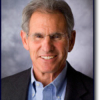Jon Kabat-Zinn

Jon Kabat-Zinn
Jon Kabat-Zinnis Professor of Medicine Emeritus and creator of the Stress Reduction Clinic and the Center for Mindfulness in Medicine, Health Care, and Society at the University of Massachusetts Medical School. Kabat-Zinn was a student of Buddhist teachers such as Thich Nhat Hanh and Zen Master Seung Sahn and a founding member of Cambridge Zen Center. His practice of yoga and studies with Buddhist teachers led him to integrate their teachings with those of science. He teaches mindfulness, which he...
NationalityAmerican
ProfessionEducator
Date of Birth5 June 1944
CountryUnited States of America
Perhaps ultimately, spiritual simply means experiencing wholeness and interconnectedness directly, a seeing that individuality and the totality are interwoven, that nothing is separate or extraneous. If you see in this way, then everything becomes spiritual in its deepest sense. Doing science is spiritual. So is washing the dishes.
Buckminster Fuller himself was fond of stating that what seems to be happening at the moment is never the full story of what is really going on. He liked to point out that for the honey bee, it is the honey that is important. But the bee is at the same time nature's vehicle for carrying out cross-pollination of the flowers. Interconnectedness is a fundamental principle of nature. Nothing is isolated. Each event connects with others.
When experience is viewed in a certain way, it presents nothing but doorways into the soul.
From the perspective of meditation, every state is a special state, every moment a special moment.
Breathing is central to every aspect of meditation training. It's a wonderful place to focus in training the mind to be calm and concentrated.
Discipline provides a constancy which is independent of what kind of day you had yesterday and what kind of day you anticipate today.
The only time that any of us have to grow or change or feel or learn anything is in the present moment. But we're continually missing our present moments, almost willfully, by not paying attention.
For men and women alike, this journey is a the trajectory between birth and death, a human life lived. No one escapes the adventure. We only work with it differently.
There are a lot of different ways to talk about mindfulness, but what it really means is awareness.
Once you have established yourself as a center of love and kindness radiating throughout your being, which amounts to a cradling of yourself in loving kindness and acceptance, you can dwell here indefinitely, drinking at this fount, bathing it in, renewing yourself, nourishing yourself, enlivening yourself. This can be a profoundly healing practice for body and soul.
Non-doing has nothing to do with being indolent or passive. Quite the contrary. It takes great courage and energy to cultivate non-doing, both in stillness and in activity. Nor is it easy to make a special time for non-doing and to keep at it in the face of everything in our lives which needs to be done.
Writing can be an incredible mindfulness practice.
Mindfulness practice means that we commit fully in each moment to be present; inviting ourselves to interface with this moment in full awareness, with the intention to embody as best we can an orientation of calmness, mindfulness, and equanimity right here and right now.
When we let go of wanting something else to happen in this moment, we are taking a profound step toward being able to encounter what is here now. If we hope to go anywhere or develop ourselves in any way, we can only step from where we are standing. If we don't really know where we are standing—a knowing that comes directly from the cultivation of mindfulness—we may only go in circles, for all our efforts and expectations. So, in meditation practice, the best way to get somewhere is to let go of trying to get anywhere at all.